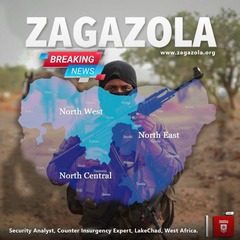Mali Faces Passport Crisis as IDEMIA Contract Nears Expiration
By: Zagazola Makama
Mali is on the verge of an administrative crisis as the contract between its government and the French technology firm IDEMIA, responsible for managing the country’s biometric passport system, approaches expiration in October 2025.
The agreement, which has long raised concerns over data sovereignty, stipulates that no biometric data will be transferred to Malian authorities upon termination. With only seven months left, no contingency measures or transition plans have been put in place, raising fears of a potential collapse in passport issuance.
Signed under unclear terms, the contract effectively entrusts Mali’s biometric data and passport issuance to a foreign entity without provisions for national control. Previous incidents, such as IDEMIA’s suspension of access to the RAVEC (Régistre Administratif à Vocation d’État Civil) database in March 2023 over an outstanding CFA 5.2 billion debt, underscored the country’s vulnerability.
Security analysts warn that if no alternative system is secured before IDEMIA withdraws, Mali may face a complete administrative shutdown in passport processing. Any new company contracted post-termination would be unable to access or utilize existing biometric records, potentially forcing a nationwide re-registration process from scratch.
Despite the looming expiration, sources within IDEMIA indicate that Malian authorities have made no formal moves to initiate a data migration plan or negotiate continued access to biometric records. The absence of a transition strategy raises concerns about disruptions in international travel for Malian citizens and a broader crisis of trust in public administration.
While reports have surfaced about alleged attempts by Malian authorities to retrieve data from IDEMIA systems through cyber operations, there is no concrete evidence that such efforts succeeded. Officially, all biometric passport features remain unchanged, except for modifications to the passport cover.
The situation points to a broader challenge facing Mali: the reliance on foreign firms for critical state functions. The government has repeatedly emphasized its commitment to strategic autonomy, but experts argue that true independence must be proactively structured, not declared. As the expiration date approaches, Mali’s leadership faces a critical decision either secure an immediate solution to prevent administrative paralysis or risk facing the consequences of prolonged inaction.
For now, the fate of Mali’s passport system, and by extension its biometric identity infrastructure, remains uncertain. The coming months will determine whether the country can navigate this crisis or fall into an avoidable bureaucratic deadlock






























